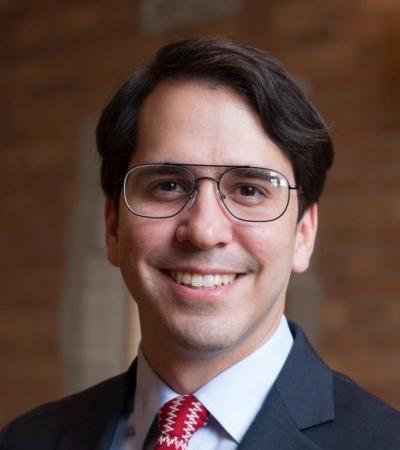 After completing his journey as a Doctor of Juridical Science (JSD) candidate at Notre Dame Law School, Kellogg PhD fellow and Dissertation Year fellow Bernardo Pulido Márquez reflects on four years of rigorous academic engagement, meaningful community involvement, and intellectual growth rooted in Notre Dame’s mission to form a “different kind of lawyer.”
After completing his journey as a Doctor of Juridical Science (JSD) candidate at Notre Dame Law School, Kellogg PhD fellow and Dissertation Year fellow Bernardo Pulido Márquez reflects on four years of rigorous academic engagement, meaningful community involvement, and intellectual growth rooted in Notre Dame’s mission to form a “different kind of lawyer.”
Pulido Márquez’s dissertation explored a pressing and often controversial topic in comparative constitutional law: the boundaries of the right to stand for election. Focusing on Latin America, he analyzed legislation and judicial decisions – especially those of the Inter-American Court of Human Rights – to map and evaluate how courts interpret and enforce restrictions on electoral candidacy. His research offers a comparative lens into how democracies reconcile inclusive political participation with legal qualifications for public office.
A native of Venezuela, Pulido Márquez received his law degree from Universidad Católica Andrés Bello in Caracas and went on to earn his Master of the Science of Law (JSM) from Stanford University before joining Notre Dame’s JSD program. He credits the intellectual diversity and openness of the Notre Dame community as a highlight of his experience: “There is no hand-holding or isolating from real topics, and there is space for a broad range of ideas. I enjoyed the freedom of being able to hear and discuss challenging issues with respect and a willingness to understand.”
Additionally, Pulido Márquez noted that the Kellogg Institute became a second family to him. He was also an active member of the Law School and campus community. He served twice as the LLM/JSD student representative to the Student Bar Association, was Managing Editor of the Journal of International and Comparative Law, and held leadership roles in the International Human Rights Law Society and the Hispanic Law Students Association. He was also a graduate fellow at the Klau Institute for Civil and Human Rights.
His faculty advisor, Kellogg faculty fellow Paolo Carozza, is internationally recognized for his work in human rights and comparative law – fields that strongly align with Pulido Márquez’s own academic and professional trajectory.
"Bernardo's doctoral work exemplifies the high standards and ideals of Notre Dame Law School and its doctoral program. It is an original, thoroughly researched, insightful, and important scholarly contribution that has human dignity and the common good as its north star,” said Carozza. “In this time of democratic erosion worldwide, his work helps to underscore and shore up one essential foundation for preserving healthy systems of democratic political participation.”
Although Pulido Márquez left campus two years ago to join the Inter-American Court of Human Rights as a staff attorney, he continued work on his dissertation remotely. He plans to remain at the Court after graduation, contributing to the advancement of human rights law across the Americas.
When asked what it means to be a “different kind of lawyer,” Pulido Márquez drew on his Jesuit undergraduate education: “Being a ‘different kind of lawyer’ is understanding that we are called to help and to make the world a better place with our legal practice. It is a call to be ethical, it is a call to be committed, it is a call to be kind.”
Since its founding in 1992, Notre Dame Law School’s JSD program has prepared a small cohort of legal scholars for academic careers and leadership roles in international and comparative law. Pulido Márquez’s journey exemplifies the program’s commitment to scholarly rigor, ethical responsibility, and global engagement.





